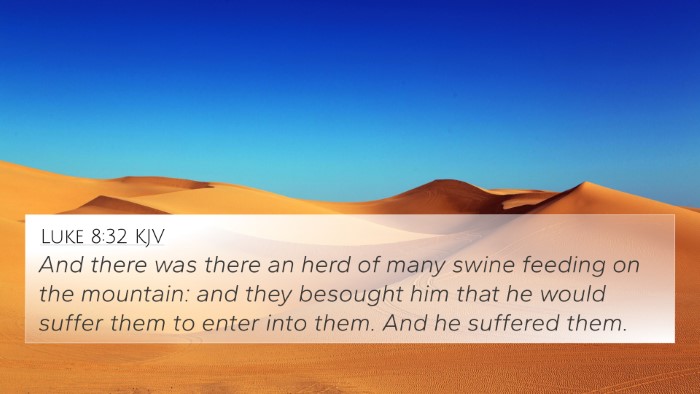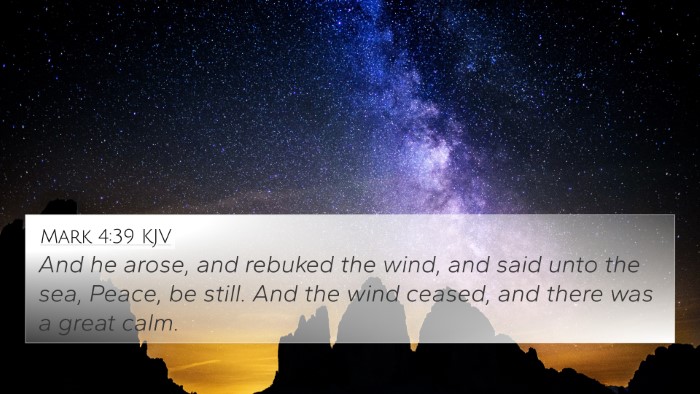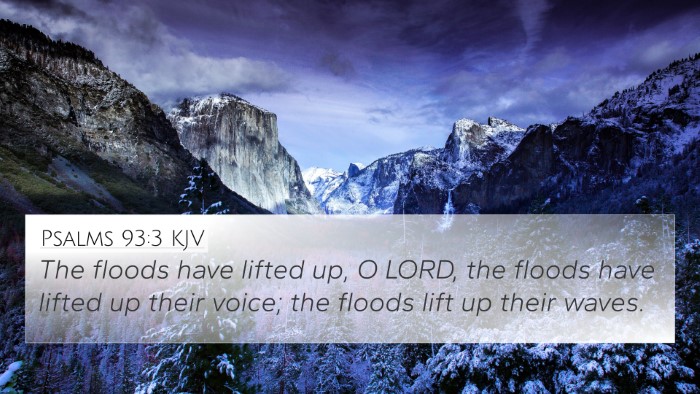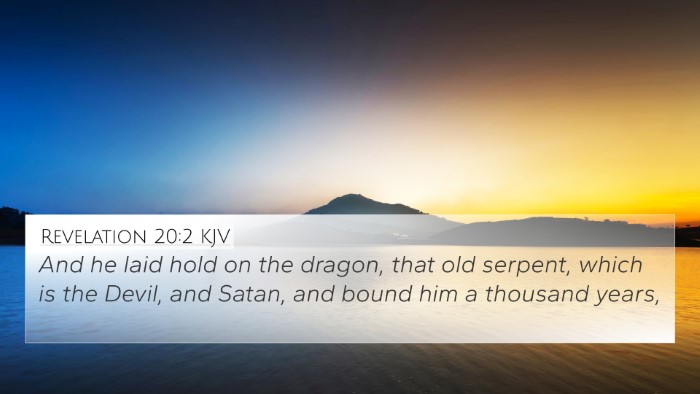Job 38:11 - Introduction
In this profound verse, God speaks to Job, challenging him with a question that underscores the divine authority and sovereignty over creation. The opening of God’s response, marked by a shift in tone, reveals the significance of understanding one's place in relation to the Creator. The question "Hitherto shalt thou come, but no further: and here shall thy proud waves be stayed?" serves as a reminder of the limitations imposed on nature, a theme that resonates deeply throughout the Bible.
Meaning and Context
In the context of the Book of Job, this verse is part of God’s reply to Job after a prolonged period of suffering and questioning. Job, in his distress, sought explanations for his afflictions, and God’s response emphasizes His omnipotent control over the universe. This divine assertion not only addresses Job’s need for understanding but also serves to humble him, reminding all of humanity of our limited perspective.
Commentary Insights
- Matthew Henry: Notes the illustration of God’s authority, likening the waves of the sea to the tumultuous events in our lives that must ultimately submit to God’s command.
- Albert Barnes: Reflects on the metaphor of the sea, explaining how it represents chaos and uncertainty, yet is bounded by God’s command, offering a powerful image of divine restraint.
- Adam Clarke: Highlights God’s question as a rhetorical device intended to provoke thought about the limits of human understanding and the majesty of creation that is governed by divine law.
Thematic Connections
This verse can be cross-referenced with several key biblical themes, illustrating the interconnectedness of scripture.
- Job 26:10 - Discusses God’s delineation of light and darkness, hinting at His creative and sustaining power.
- Psalm 104:9 - Explores God’s sovereignty over the earth and His establishment of boundaries for creation.
- Proverbs 8:29 - Speaks to God’s establishment of the earth and control over the waters, reinforcing the theme of divine authority.
- Jeremiah 5:22 - Emphasizes the fear of the Lord in relation to the natural order and the boundaries God has set for creation.
- Isaiah 50:2 - Implies God’s power over natural elements, drawing a connection to His ability to command the seas.
- Matthew 8:26 - Where Jesus calms the storm, reflecting His authority similar to that described in Job.
- Revelation 20:3 - Contains themes of restriction and control, paralleling the limitations that God imposes on chaos.
- Mark 4:39 - Another narrative of Christ demonstrating dominion over nature, emphasizing the same powerful presence as in Job.
- Hebrews 11:3 - Relates to the understanding of the universe framed by the word of God, echoing the themes of authority and design.
- Romans 9:20 - A reminder of humanity's position in questioning God, devoted to understanding divine wisdom.
Application and Reflection
As readers reflect on Job 38:11, it is essential to embrace the humility that comes with recognizing our limited understanding compared to the vastness of God’s creation. The verse encourages believers to find comfort in the sovereignty of God over life's chaos and uncertainties, reinforcing trust in His divine plan.
Resources for Deeper Study
To further explore the themes contained in Job 38:11 and its connections with other scriptures, consider utilizing the following tools:
- Bible Concordance for identifying related verses
- Bible Cross-Reference Guide for thematic studies
- Cross-Reference Bible Study Methods for in-depth analysis
- Bible Chain References for connecting verses by themes
- Comprehensive Bible Reference Resources for exploring various teachings
Conclusion
In summary, Job 38:11 serves as a profound reminder of God’s authority and the limits set upon creation, encouraging believers to trust in His ultimate wisdom. The connections between this verse and others enhance our understanding of God's nature and the overarching narrative of the Bible. By engaging in scripture cross-referencing, we can cultivate a deeper understanding of God's Word and its implications for our lives.














